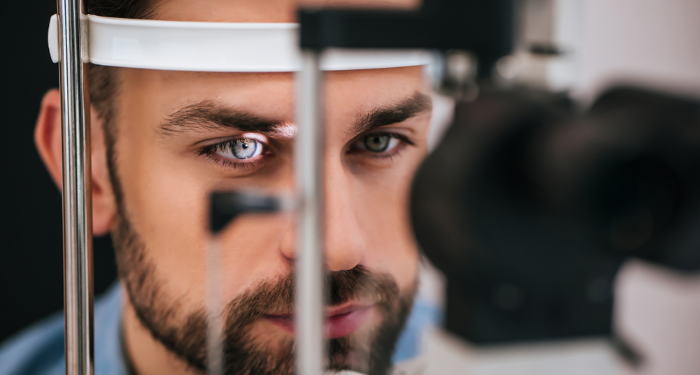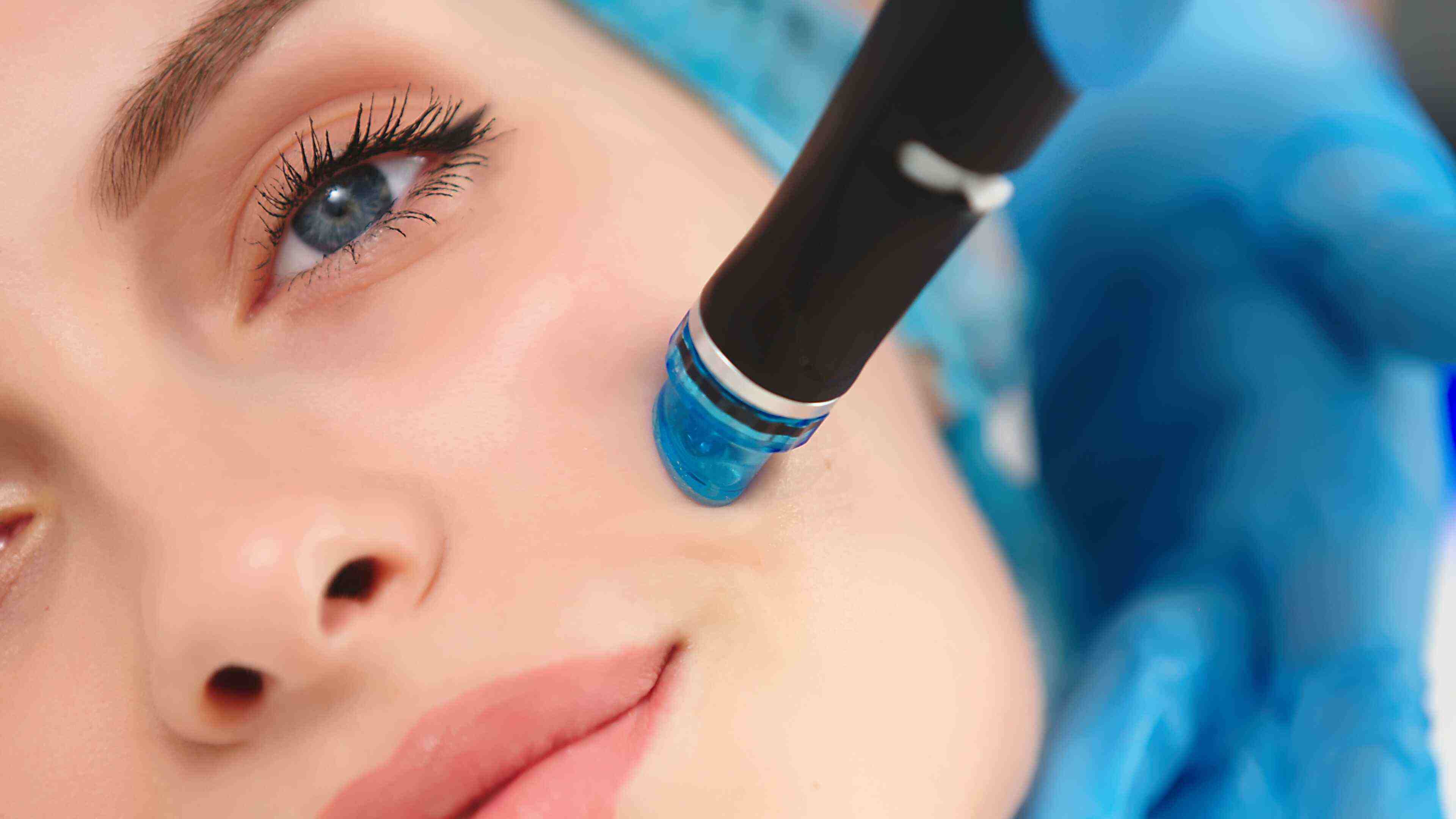Written By: Dr. Anurag Mathur
Dr. Anurag Mathur is a specialist in the Ophthalmology department at Medcare. He completed his MBBS & Masters in Ophthalmology & went on to hold several teaching positions at institutes in India. He then joined Aster Clinics & Hospitals, UAE as a specialist ophthalmologist.
Updated On:December 25, 2023
Read more.

What is Glaucoma?
Glaucoma is a term that refers to eye conditions caused by damage to the optic nerve, resulting in blurry vision & many other disturbances. The onset of glaucoma can be gradual or sudden, depending on what causes it. Fortunately, timely treatment often has a good prognosis.
Symptoms of Glaucoma
The symptoms of glaucoma vary with the type of glaucoma that is affecting your eyes.
Glaucoma can be broadly categorized into Open-Angle & Closed-Angle Glaucoma, referring to the ‘angle’ that is found between the iris, which is the colored part of your eye, & the cornea, which is the transparent covering of the bulge at the front of the eye.
The symptoms of open-angle glaucoma include:
- Blind spots affect mostly the peripheral or center of vision, often in both eyes
- Tunnel vision, which is the loss of peripheral vision with intact central vision, during the advanced stage of the disease.
The symptoms of closed-angle glaucoma, which tend to be more severe, include:
- Severe pain in the eye or head
- Nausea
- Vomiting & abdominal disturbance
- Blurry vision
- Redness of the eyes
- Seeing halos around lights
- Abnormal pupil size
- Sudden loss of vision
When to Visit a Doctor for Glaucoma?
Getting your vision tested regularly is often not enough & it is advised to get a regular eye check-up done to specifically evaluate eye pressure, which is a leading factor in the cause of glaucoma. Overall it is recommended to have your eyes checked yearly for glaucoma after the age of 40 years, especially if you have a positive family history or any other risk factors like diabetes, high myopia etc.
If you experience any severe disturbances such as severe eye pain, persistent redness or sudden vision loss, contact your doctor immediately.
What Causes Glaucoma?
Since the optic nerve carries impulses from the eye to your brain, damage to it will result in visual impairment. Common causes for optic nerve damage, & hence glaucoma, include:
- Accumulation of aqueous humor (fluid found in your eye), raising the pressure in the eye
- Hypertension
- Loss of blood supply to the nerve
- Trauma
- Genetic abnormalities
Types of Glaucoma
Glaucoma can be divided into two main categories:
- Open-Angle Glaucoma
- Closed-Angle Glaucoma
Open-Angle Glaucoma
Glaucoma with the presence of a wide-angle between the iris & cornea is called ‘open-angle glaucoma’. The trabecular meshwork which is responsible for the drainage of fluid is blocked, resulting in elevated pressure due to fluid accumulation. This presses on the optic nerve, damaging it.
Open-angle glaucoma is the most common type of glaucoma, & usually shows a gradual progression. So it may go unnoticed for a long time.
Closed-Angle Glaucoma
The iris may bulge forward to reduce the angle formed with the cornea. The reduced space hinders fluid circulation & drainage. Increased pressure on the optic nerve then causes closed-angle glaucoma.
Depending on how fast the condition progresses, you could suffer from acute or chronic closed-angle glaucoma. Acute closed-angle glaucoma requires immediate intervention.
Other Types of Glaucoma
-
Normal Pressure Glaucoma: There is no identified cause. Glaucoma in this case may be due to inadequate blood supply, as in atherosclerosis within the vessels supplying the nerve. As a result, the optic nerve degenerates. The intraocular pressure remains within normal range in this condition.
-
Pigmentary Glaucoma: Pigments found at the back of the iris break off & block the drainage system resulting in an increase in pressure within the eye.
-
Pseudoexfoliative Glaucoma: Material breaks off the lens to collect within the angle between the iris & cornea to disrupt drainage of fluid.
-
Traumatic Glaucoma: Damage to the optic nerve occurs as a result of bruises or penetrative injury to the eye. Symptoms may occur immediately or after years.
-
Congenital Glaucoma: Malformation or blockage of the trabecular system present at birth can cause glaucoma. It may occur due to genetic defects or defective development during pregnancy. Glaucoma may occur with other defects within the eye.
-
Neovascular Glaucoma: Formation of new blood vessels that cover the drainage system, resulting in fluid accumulation, is usually associated with other conditions, most often diabetes.
-
Irido-Corneal Endothelial Glaucoma (ICE): This is a rare form of glaucoma that usually affects one eye. The abnormal layer of cells covers the posterior surface of cornea & also sweeps over the angle to cover it, to disrupt drainage, & may even cause the iris & cornea to partially fuse, increasing the pressure even more.
Risk Factors for Glaucoma
The risk of developing glaucoma can increase due to the following factors:
- Age (especially those above 60)
- Family history of glaucoma
- High intraocular pressure
- Other conditions such as diabetes, heart disease or hypertension
- Regular use of corticosteroid containing eye drops
- History of eye surgery or trauma
- Abnormally thin cornea
- Extreme far-sightedness or short-sightedness
Complications of Glaucoma
Complications can arise if you ignore or ineffectively treat the early symptoms of glaucoma. These may occur over time or suddenly, depending on the type of glaucoma you suffer from.
Generally, long-standing glaucoma without treatment is a leading cause of a variety of visual disturbances such as:
- Complete blindness
- Loss of peripheral or central vision
- Chronic Corneal Edema - which refers to the accumulation of fluid in the cornea (the transparent structure that forms a bulge at the front of your eye) - can cause blurry vision.
Treatment of Glaucoma
Once glaucoma sets in, it is not curable. However, the condition can be prevented from progressing. Glaucoma treatment usually begins with eye drops to help control intraocular pressure.
These eye drops can include:
- Chemicals to reduce the production of fluid
- Chemicals to improve the drainage of fluid
The use of eye drops may causes discomfort or redness of the eyes, alongside other side effects that affect other functions of the body. Consult your doctor to seek help in this case.
Oral drugs may be prescribed in addition to eye drops to aid glaucoma prognosis. If glaucoma cannot be managed with medication alone, surgical procedures may be performed:
- Laser therapy to clear out blockage in the trabecular meshwork
- Minimally invasive glaucoma surgery (MIGS)
- Filtering therapy to remove parts of the trabecular meshwork to improve drainage
- Drainage shunts for provide additional drainage of fluid
Prevention of Glaucoma
In most cases, glaucoma can be managed before it causes severe visual impairment. Regular eye tests can help assess eye pressure & potential risk of glaucoma. Everyone over the age of 40 should get an annual comprehensive eye check-up for timely detection of glaucoma along with other common eye disorders.
The effectiveness of glaucoma treatment heavily depends on timely diagnosis. Also, always remember that wearing protective gear during sports, using machinery, or performing risky tasks can help protect your eyes from damage.
For more information on prevention, diagnosis & treatment of glaucoma, get in touch with us.
Meet our doctors from the Ophthalmology department
|
||||||||
|
||||||||
|
||||||||
|
||||||||
|
||||||||
|
||||||||
|
||||||||
|
||||||||
|
||||||||
|
||||||||
|
||||||||
|
||||||||
|
||||||||
|
||||||||
|
||||||||
|
||||||||
|
||||||||
|
||||||||
|
||||||||
|
||||||||
Similar Posts
teleMEDCARE App
Download teleMEDCARE app from Google Play or App Store to connect immediately to Medcare doctors at a click of a button and without an appointment.

Home Services
We offer our patients a broad range of home health care services in the comfort of their own homes. Book an appointment for lab tests, vaccinations, nurses and physiotherapists.

Chronic Care
Know more about our Chronic Care Management Programme in partnership with Damana Saicohealth.

teleMEDCARE App mobile
Download teleMEDCARE app from Google Play or App Store to connect immediately to Medcare doctors at a click of a button and without an appointment.

Home Services
We offer our patients a broad range of home health care services in the comfort of their own homes. Book an appointment for lab tests, vaccinations, nurses and physiotherapists.

Spotii
We have partnered with Spotii to offer a more flexible way to pay - Pay over time for your purchase. No interest, no cost & no catch.



























